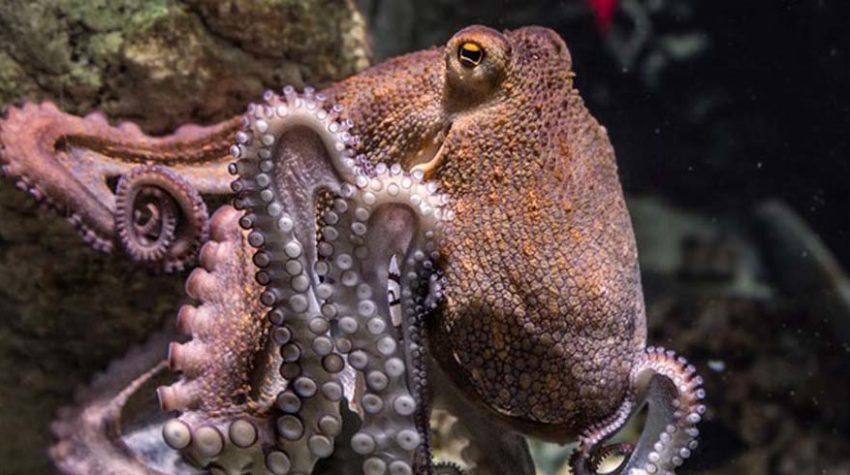
October 11, 2022Animal Law & Policy Clinic, Media ReleaseNineteen Lawmakers Request Protections for Cephalopods Used in Research
Minimum Standards of Care Lacking for Octopus, Squid, Cuttlefish, Group Says
Press Release by Physicians Committee for Responsible Medicine
WASHINGTON, D.C. — Massachusetts Congressman Seth Moulton, D-Mass., along with 18 other federal lawmakers, is calling on the National Institutes of Health (NIH) and the Department of Health and Human Services (HHS) to enact protections for cephalopods — octopus, squid, and cuttlefish — which are increasingly being used in laboratory research without federal requirements for “humane” handling.
“We request that you take action to amend the Public Health Service Policy on Humane Care and Use of Laboratory Animals to include cephalopods … within the definition of ‘animal’ so that these animals will receive the minimum protections for ‘humane’ handling and care required by that policy,” the Congressional group wrote in an Oct. 11, 2022, bipartisan letter to NIH Acting Director Lawrence A. Tabak and HHS Secretary Xavier Becerra.
Because cephalopods — intelligent and sentient invertebrates — are not currently considered “animals” by federal policy, they are allowed to be bred and sold for laboratory studies at all stages of their lives with no federally mandated requirements for their care and handling.
“United States animal welfare policy is falling behind and failing these precious animals,” said Catharine E. Krebs, PhD, medical research specialist with the Physicians Committee for Responsible Medicine. “Cephalopods belong in the ocean. Until we leave them there, they need these basic protections already afforded to vertebrates.”
Cephalopods have the capacity to suffer. Many experiments on them may cause them to feel pain, such as by depriving them of food, conducting invasive neuroscience research, or shocking them with electric prods. Without federal oversight for their use in research, there is no way to track how many are used and no accountability for the ways researchers use them.
In June 2020, Harvard Law School’s Animal Law & Policy Clinic represented a coalition that included the Physicians Committee in a petition to the NIH and HHS on the issue.
Patricia A. Brown, director of the Office of Laboratory Animal Welfare (OLAW), responded to the petition, saying that her office was considering options for providing guidance on the humane care and use of invertebrates in NIH-funded research and would seek public comment on the matter. She also reiterated the agency’s commitment “to promoting the best possible care and use of the animals involved in the research it supports.” But two years later, no new actions have been announced, nor has public comment been solicited.
“If the NIH is indeed fully committed to promoting the best possible care and use of the animals involved in the research it supports,” the letter signed by Rep. Moulton and others says, “then it is time to put this commitment into action.”
The enacting of protections for cephalopods would bring the United States in line with several other countries and government entities that already have mandates for their humane treatment when they are used in government-funded research, including the United Kingdom, Canada, New Zealand, Australia, Switzerland, Norway, and the European Union.
Hallie Aylesworth, a student with the Harvard Law School Animal Law & Policy Clinic, said: “We are pleased that members of Congress recognize the urgent need to protect cephalopods. We are hopeful that this Congressional support will help convince NIH to grant our petition and create protections for these intelligent, unique animals who are undoubtedly worthy of humane treatment.”
Fellow student Asha Anjali Ramakumar added: “It is wonderful to see that so many members of Congress recognize the inherent value of cephalopods and the arbitrariness of the invertebrate distinction in the existing definition of ‘animal.’”
To speak with Dr. Krebs, please contact Kim Kilbride at 202-686-3737 or [email protected].
To speak with Hallie Aylesworth or Asha Anjali Ramakuma, please contact Sarah Pickering at 617-852-6484 or [email protected].
